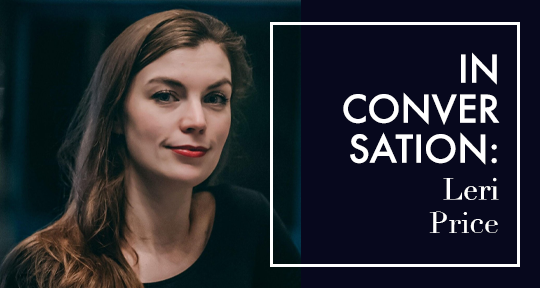This week, we find the world celebrating the voices of both writers and translators. In New York City, a live reading event features the ongoing work of Latin American writers, while in Mexico City, a Chicanx poetry reading tour is inaugurated. In Palestine, the nation mourns the loss of poet and translator Salma Khadra Jayyusi, a brilliant mind who never ceased to advocate for Arabic literature and its translation. Meanwhile, in Madrid, Romanian writing sees the spotlight, and in Barcelona, the literary community proudly reminds the world to name the translator.
Alan Mendoza Sosa, Editor-at-Large, reporting from the United States and Mexico
April has seen many phenomenal community initiatives championing diverse and outstanding writers, both in the U.S. and Mexico.
On Saturday, April 15, I travelled to Queens in New York City to attend a reading at the independent Hispanic bookstore, Librería barco de papel. Aptly held in Jackson Heights, a neighborhood known for its extraordinary cultural diversity, the event featured the most recent work-in-progress of established and emerging Latin American writers. The lineup was a diverse assembly of nationalities, genres, and visions. It included Ruy Feben (Mexico), Margarita Drago (Argentina), Sara Malagón Llano (Colombia), and Nilton Maa (Perú). Their readings touched on pressing topics such as cultural memory and migration, sexuality and friendship, exile and language, and technology and heritage. I found them especially moving as someone from Mexico who has lived abroad for so many years. The atmosphere was joyful and engaging, vitalized by the effervescent hospitality of the event’s organizer and host: Argentinian writer, professor, and community leader Guillermo Severiche. Supported by many institutions, he runs En Construcción, a series of readings and workshops aimed at promoting New York-based Latinx and Latin American writers working in Spanish, Portuguese, Creole, Quechua, or any other languages from the continent. Severiche’s initiative has been celebrated and sponsored by several organizations, among them the magazine Poets & Writers, the Feria Internacional del Libro de la Ciudad de Nueva York, and the New York Foundation for the Arts, which recently awarded him a grant for his upcoming writing project, about birds in New York.
In Mexico City, another marvelous literary event is taking place between April 25-29: the national tour of Mexican and Chicanx poetry, “Speaking in tongues / Hablando en lenguas”, founded, organized, and directed by the internationally acclaimed Mexican poet Minerva Reynosa. The groundbreaking reading series will bring Chicanx poetry to several cities across Mexico, with a lineup including Reynosa and Mexican poet Indira Isel Torres Crux, alongside the Chicanx poets Aideed Medina, Viva Padilla, Josiah Luis Alderete, and Hector Son of Hector. Together they perform a vibrant diversity of styles, perspectives, and languages. Their readings at this momentous festival challenge historical silences (ironically, Latinx poetry is not widely known or read in Mexico) and, crucially, bring people together through joy, community, and the shared passion for poetry. READ MORE…


